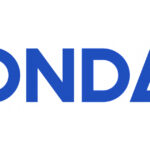
In the Korean economy, startups are rising as the new growth engine that will lead future industry. However, despite the fact that over the past several years the Korean startup ecosystem has grown rapidly, there still exist signs of clogging when it comes to investment and regulation issues.
In an event called ‘Startup Korea’, hosted by leading Korean business associations including the Asan Nanum Foundation, the Korea Venture Business Association, and the Korean Entrepreneurs Society, government officials and startup gurus gathered to discuss the current status of the Korean startup scene on a global scale and future efforts to boost the ecosystem.
During the event on July 13, they released a collaborative report which sheds light on all these topics, including how Korean startups are doing in comparison to overseas startups, what kind of challenges they are facing in global competition, and how they can promote innovation and improve the venture capital industry.
Kim Soo Ho, a partner in McKinsey & Company, pointed out a crucial challenge to Korean startups. He said that, among the top 100 startups that cumulatively have received the most funding, 13 of them, which account for almost 40.9% of the total investment amount, cannot run their business in Korea due to regulation. Only 43 companies, which account for 28.7% of total investment, have no conflict with the regulations and therefore can run their business in Korea.
In his eyes, Korean startups are lagging behind in global competition because of strict regulations. Even Airbnb, Uber, and Ant Financial, some of which have already become unicorns, would be blocked by the regulations when they bring their services to Korea.
In fact, according to a report made by CB Insight, a US market research firm, in early 2016, only one Korean company was ranked in the list of the world’s top 100 startups.
The number of Korean startups has been rapidly increasing in recent years and was recorded to be 96,000 in 2016, an impressive leap from 65,000 in 2011. Despite the increase, Korea still ranked 27th in the global entrepreneurship index, which takes into account factors such as investment, data infrastructure, and entrepreneurial culture.
According to the report, Korea’s startups have survived the global innovation competition. However, it also suggests that in order to lead the next era of the fourth industrial revolution, it still needs some improvements. First, regulation-wise, transitioning to an open regulatory system will greatly lower entry barriers for potential entrepreneurs. In addition, data-wise, it is necessary to increase the availability of high-quality data, which is a core resource of the ICT era.

From a quantitative perspective, Korea’s venture capital market has expanded, ranking 5th place in the amount of new investments relative to the country’s GDP. However, it is worthy to point out that more than 40% of VC investments come from public funds. Also, while there are many M&As happening globally, Korean VCs rely almost exclusively on the IPO of the startups they invested in to have returns on investment. Because it takes around 13 years for a startup to go public, they tend to earn returns by selling the stocks in the Over-The-Counter market or from reimbursement from the startups.
The report suggests that an environment should be adjusted to improve the venture capital system by deregulating the venture capital system, and fostering corporate venture capital (CVC) that can generate substantial investment demand.
At the same time, there should be efforts to boost the culture of entrepreneurship, namely, establishing an education system and creating a social safety net for failed cases.

During the opening ceremony, Lee Kyung Sook, chairman of the Asan Nanum Foundation, said, “Although the era of the fourth industrial revolution has arrived, Korean startups are being pushed out of global innovation competition. I hope that the government pours more efforts into improving the policy so that the Korean startup ecosystem goes through qualitative growth, not just quantitative growth.”
Jeffrey Lim, Head of Campus Seoul also remarked that he hopes this report, which was co-written by Asan Nanum Foundation and Google Campus Seoul, will help Korea design startup policies in the future.
(Top photo from Platum)
This article, entitled “Regulations strangling South Korean startup ecosystem”, was written in Korean by Yohan-SON of Platum, edited by AllTechAsia.







Leave a Comment